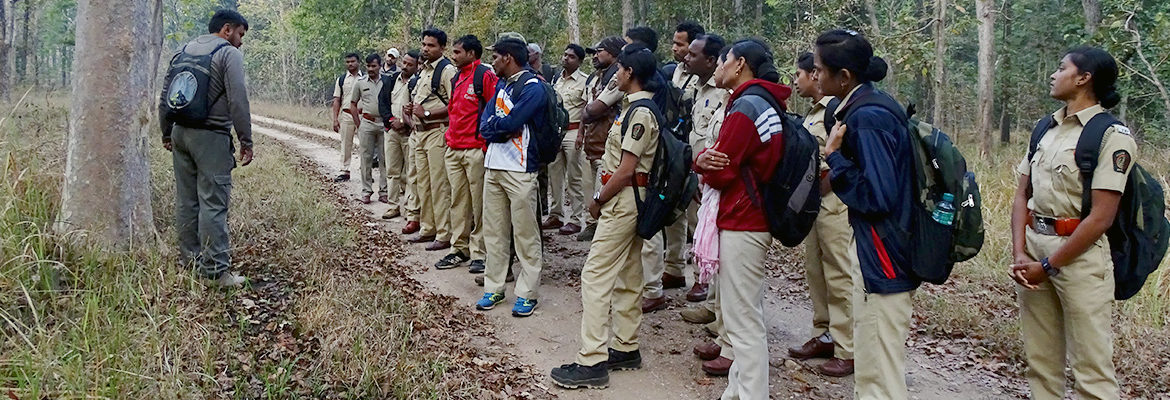In recognition of, and in response to, the growing illegal wildlife trade and other wildlife offences that threaten the survival of wild animal populations; the linkage between the coronavirus pandemic and the illegal wildlife trade; and the growing global efforts against wildlife crime, WCT developed the Combatting Wildlife Crime (CWC) programme that draws from our decade-long law-enforcement-centric work and expertise to drive multi-pronged, multi-stakeholder efforts to combat wildlife crime.
Under this programme, WCT’s law enforcement, forensics, and legal experts carry out training, capacity building, and sensitisation initiatives for a wide range of stakeholders.
Wildlife Law Enforcement Training
Hunting, illegal wildlife trade, poisoning, electrocution, and snaring are some of the serious threats faced by wildlife in India. Conviction rates in wildlife crime cases are abysmally low. Effective and prompt law enforcement, leading to increased rates of conviction, is the key to reducing these widespread threats. The Wildlife Law Enforcement Training (WLET) module at WCT has been curated to build capacity in the frontline forest staff across the country, to achieve these goals.
The trainings, which are conducted for the frontline staff, as well as senior forest officers, covers the following:
- Wildlife law and legal procedures
- Case studies on latest judgements
- Modern crime investigation techniques
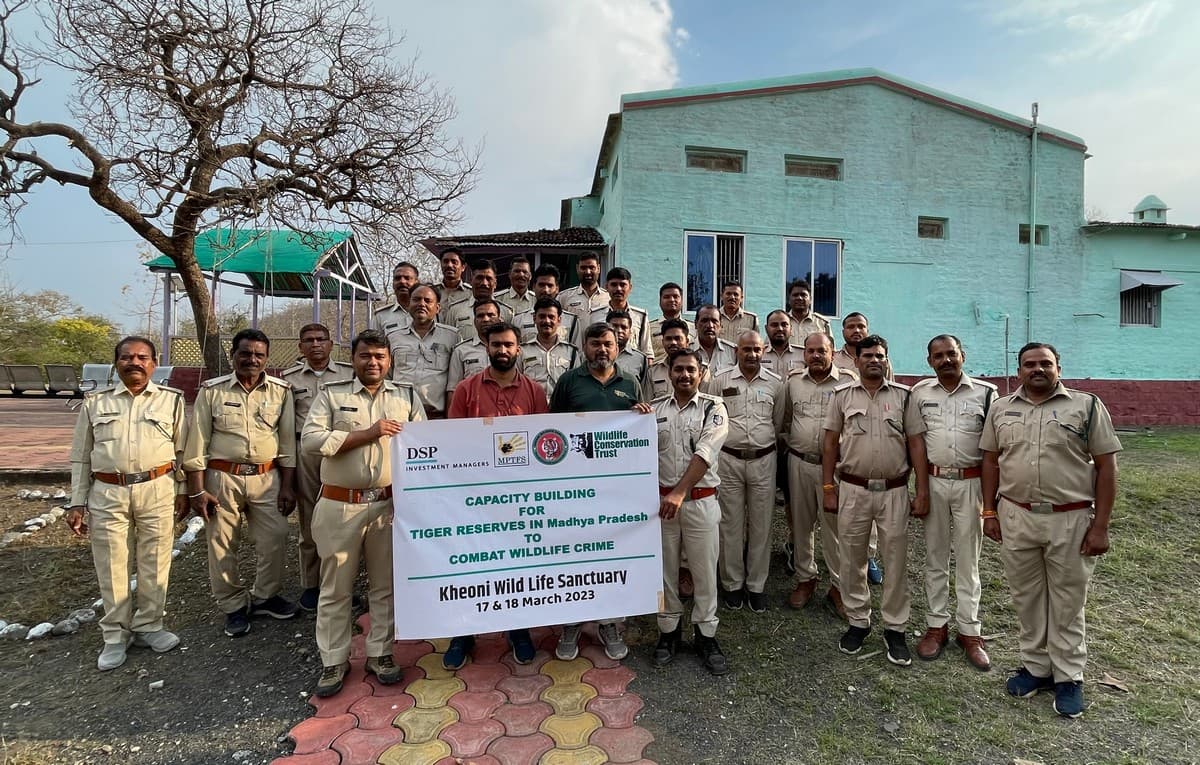
Participants from a law enforcement training conducted in 2023.
Forensics Training
Establishing links between the criminal and the crime in the court of law is a major challenge in wildlife crime cases, and poor evidence collection practices by forest staff help the accused evade conviction. To plug this gap, WCT trains forest staff in forensically sound processes of evidence collection and preservation.
The training programmes in forensic science, organised in collaboration with well-equipped labs, help create a better understanding of the scope and limitations of forensic analysis, and systematise field techniques of evidence collection.
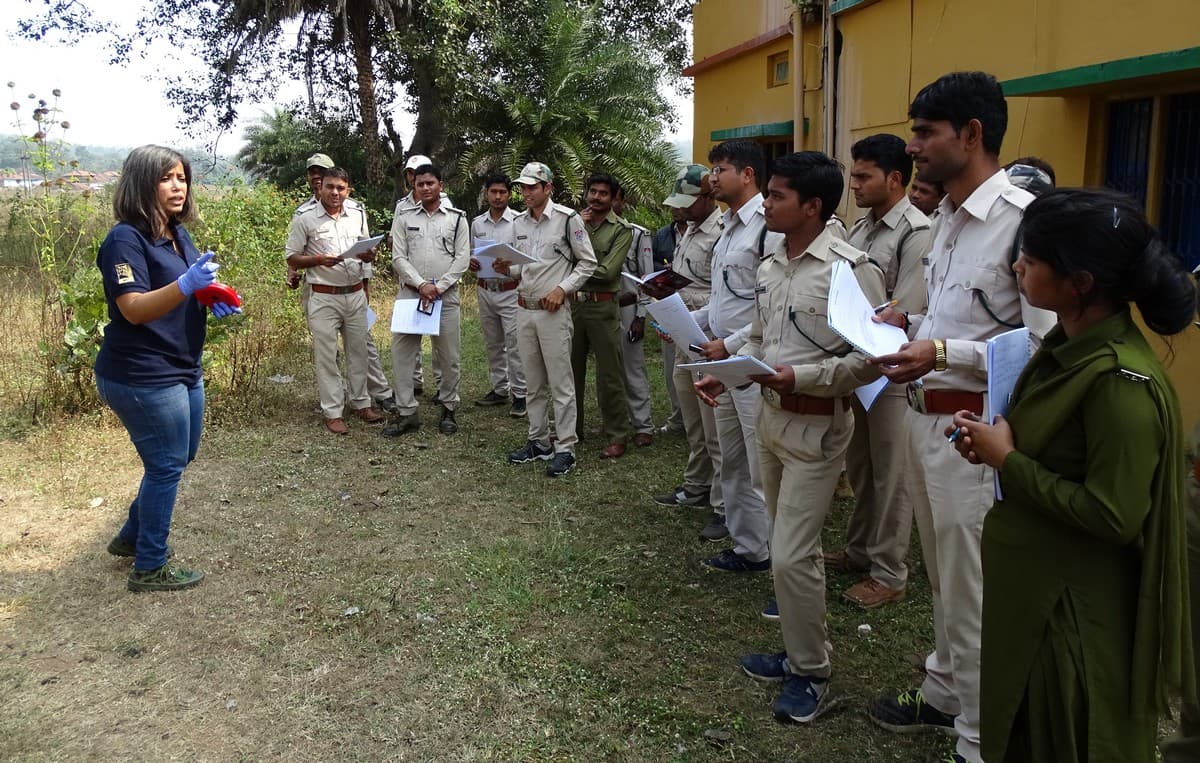
A wildlife forensics training session in progress.
Workshops for Judicial Officers, Government Prosecutors, Legal Professionals and Law Students
WCT is cognisant of the role that lawyers and judges play in the delivery of justice in wildlife offences. To sensitise them about wildlife crimes, WCT conducts training programmes and workshops for state-level Judicial Officers, Government Prosecutors, legal professionals and law students across the country.
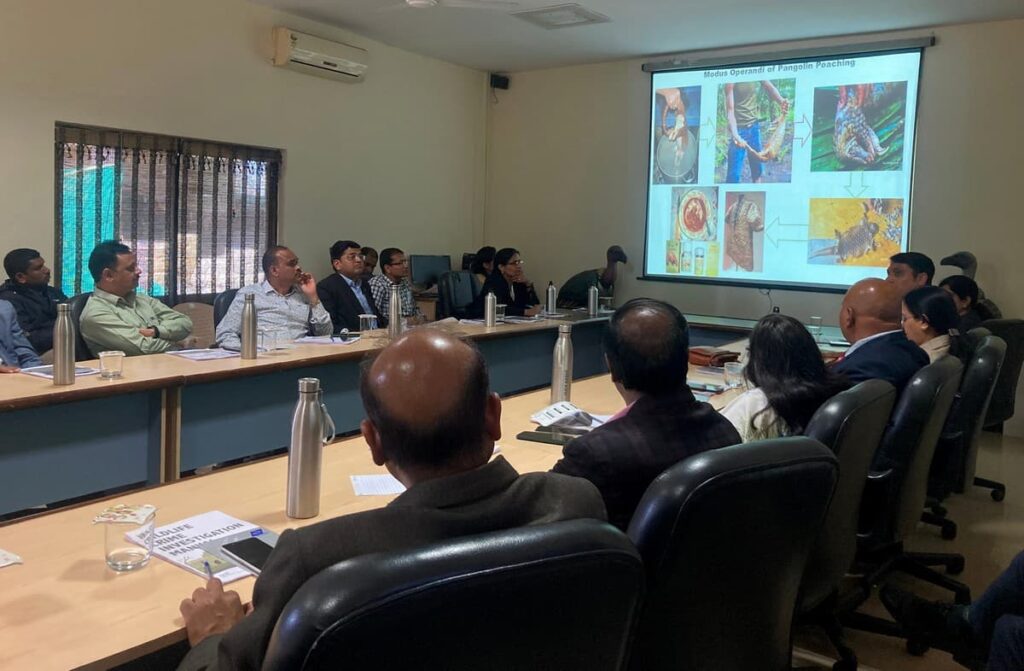
A workshop underway for Assistant District Prosecution Officers (ADPOs).
Wildlife Protection National Moot Court Competition
WCT believes that if young lawyers are sensitised about the complex challenges of conserving India’s life-giving ecosystems and biodiversity while balancing the interests of people, they can become a strong force for environment protection. To achieve this goal, we conceived the National Wildlife Protection Moot Court Competition in 2019. Since its inception, the competition has been held in collaboration with and at the campus of the prestigious Government Law College, Mumbai. The competition draws active participation from leading law colleges across the country.
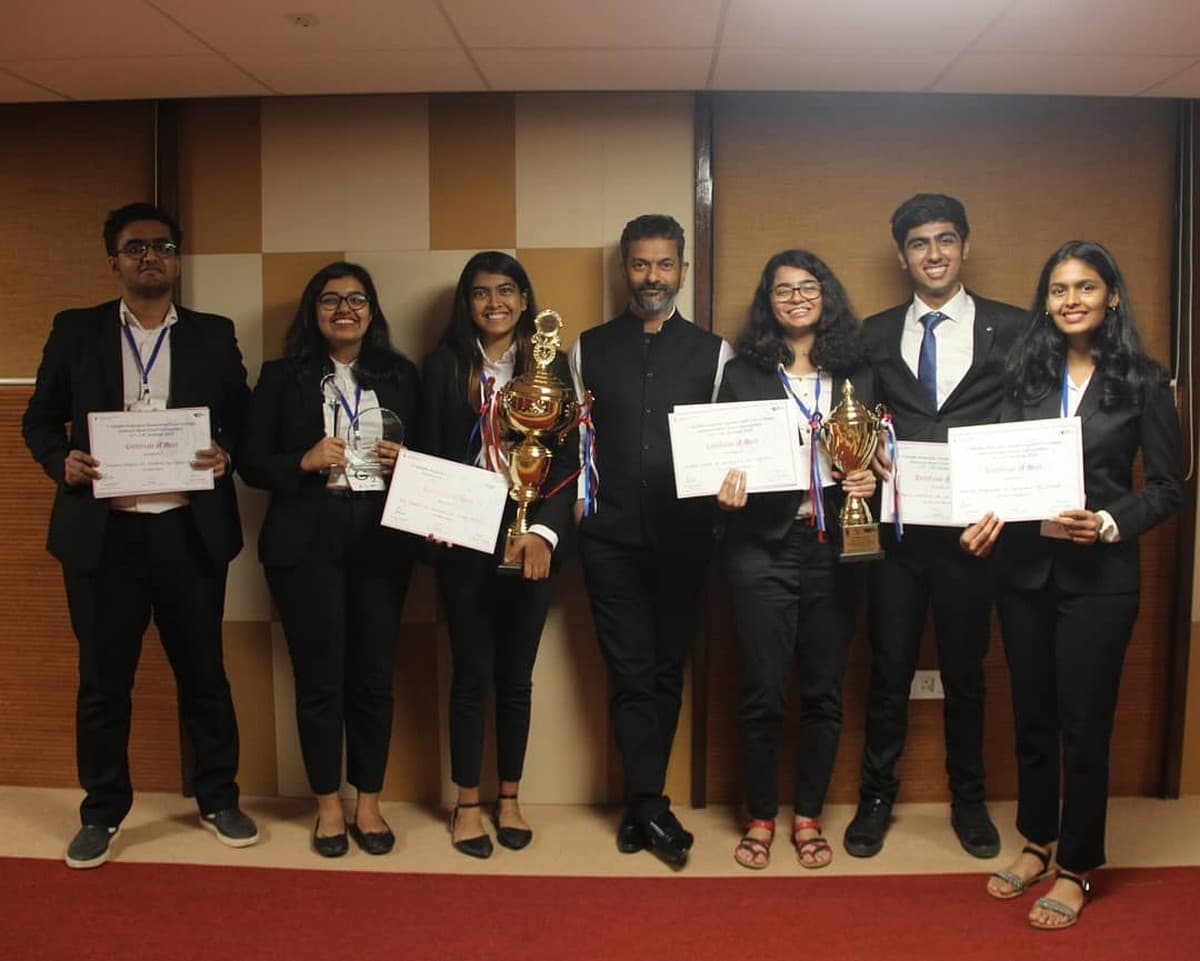
Winners of the National Wildlife Protection Moot Court Competition 2019, with WCT President Dr. Anish Andheria
WCT has, in the past, run the following programmes, as part of its efforts to strengthen law enforcement in India’s Protected Areas (PAs):
Site Security
Recognising the importance of a year-round vigil in safeguarding forests, WCT, in collaboration with Panthera, conducted nine-day training programmes to develop the capacity of forest guards in human tracking, making tactical observations, using camouflage and concealment at the time of patrolling and carrying out search operations.
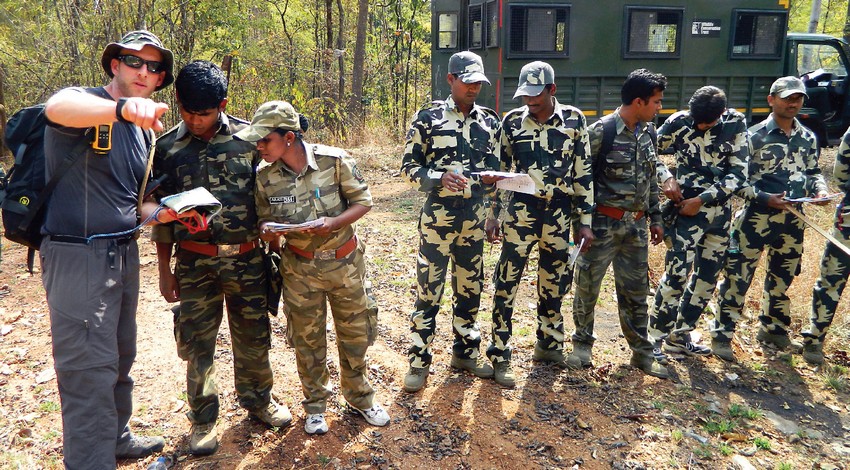
Law Enforcement Monitoring
Realising that the on-ground protection of forests and wildlife, which encompasses patrolling and intelligence gathering, needed to be more robust to keep wildlife crime in check, in 2016, WCT launched its Law Enforcement Monitoring (LEM) programme, in collaboration with the Wildlife Institute of India (WII), State Forest Departments and the National Tiger Conservation Authority (NTCA), to make patrolling more systematic and tactical, so as to eliminate or reduce illegal activities inside tiger reserves and other PAs.
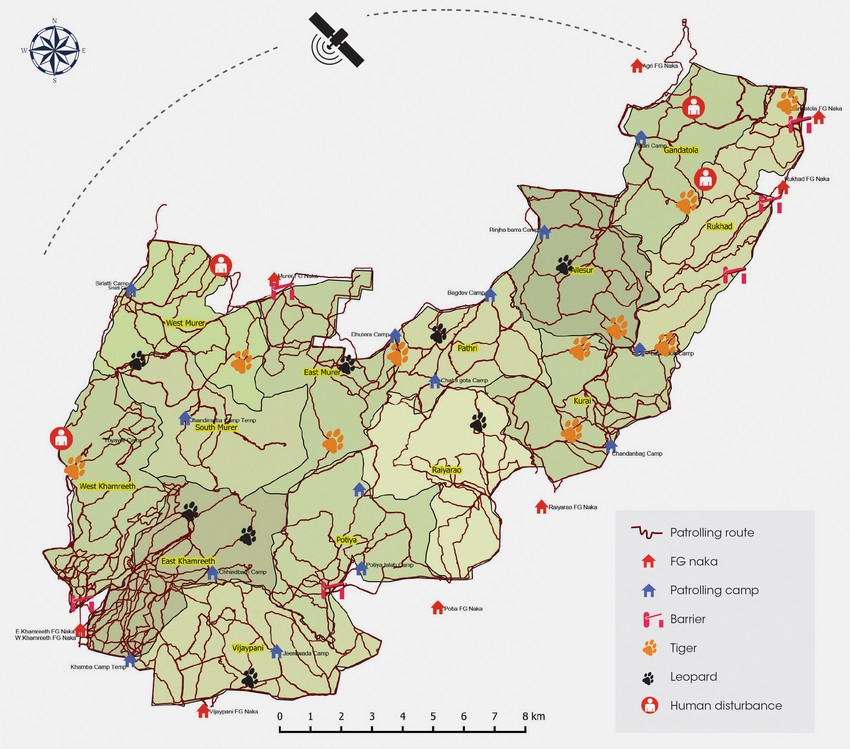
Using the MSTrIPES (Monitoring System for Tigers – Intensive Protection and Ecological Status) module, which helps maintain a database of patrolling, illegal activities and ecological attributes in an analytical framework, the programme brought order and accountability to patrolling, and made available fine-grained information to the Field Directors, helping them make informed decisions for protection.
As part of this programme, over 40 lakh kilometres of patrol efforts have been analysed and reported to the respective park managements between May 2016 and June 2020, covering a total area of over 8,085 sq. km. Over 3,700 forest staff have been trained in the use of patrolling tools such as the GPS, site-specific data-sheets, and the MSTrIPES software.
Your donations support our on-ground operations, helping us meet our conservation goals.
Related Links
- Conservation Strategy
- Education
- GUARD DIARIES: Battling Forest Fires
- Impact
- World Wildlife Day 2019 – Life Below Water
- 9 Steps to an Environment Friendly Lifestyle
Header image © Dr. Anish Andheria

